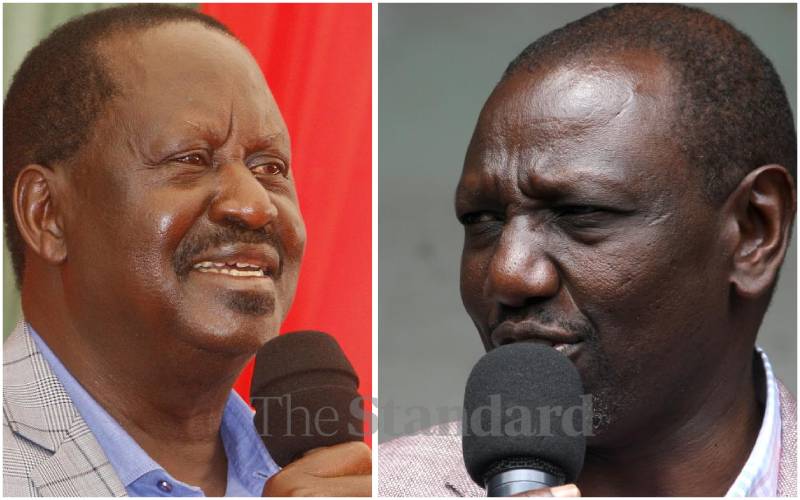×
The Standard e-Paper
Kenya’s Boldest Voice

ODM leader Raila Odinga and DP William Ruto. [File, Standard]
As long as we suffer selective amnesia, evident in our treatment of political incitement, intolerance, and fights, the August 2022 elections will knee Kenya.